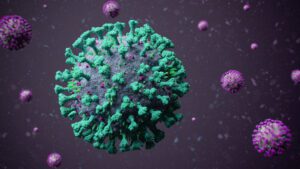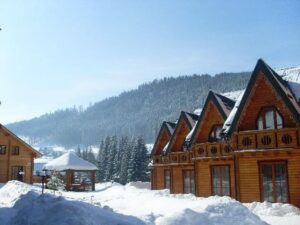
President of Ukraine Volodymyr Zelensky during a telephone conversation with Crown Prince of Abu Dhabi Mohamed Bin Zayed Al Nahyan discussed cooperation between Ukraine and the United Arab Emirates, as well as the implementation of joint projects.
“Had a phone conversation with Crown Prince of Abu Dhabi, Sheikh Mohamed bin Zayed Al Nahyan. The importance of strengthening cooperation between Ukraine and the UAE was noted. The implementation of joint projects was discussed. Invited Mohamed Bin Zayed to visit Ukraine,” Zelensky said on Twitter on Friday.
National bank of Ukraine’s official rates as of 06/12/21

Source: National Bank of Ukraine

The Ministry of Health of Ukraine said that 43.8% of the adult population of Ukraine received at least one vaccine against COVID-19, and 37.2% completed the full course of vaccination.
“Already 43.8% of the adult population of Ukraine have received at least one vaccination against COVID-19. Some 37.2% of the adult population of Ukraine have completed the full course of vaccination against coronavirus disease,” the ministry said on its Telegram channel.
The Ministry of Health also reported that according to WHO recommendations, the rate of vaccinated people in the world by the end of the year should be 40%.
As reported, since the beginning of the vaccination campaign 13,610,070 people have been vaccinated, of which 13,610,068 people received one dose, 11,549,490 people were fully immunized and received two doses. A total of 25,159,558 vaccinations were carried out.

Ukrainian hotels in the Carpathians are expected to be fully loaded for the New Year period; as of the middle of November, up to 50% of rooms have been booked, hotel operators reported.
“The New Year period cannot be taken as a basis in predicting the dynamics of reservations. New Year is a traditional time of travel. All Ukrainian resorts (Bukovel, Drahobrat, Truskavets, etc.) are occupied for New Year. People plan New Year’s holidays in advance, so it is already difficult to find vacant rooms,” Executive Director of Ribas Hotels Group Andriy Marenchuk told Interfax-Ukraine.
According to him, the depth of booking is in line with last year’s indicators, but the number of guaranteed bookings has decreased.
“There was a request from guests for free cancellation of reservations. This is due to COVID-19 restrictions, the political situation and the impossibility of planning,” he said.
According to the hotel operator Reikartz Hotel Group, clients are gradually returning to long-term planning of their holidays: as of mid-November, the occupancy of resort hotels for the New Year and Christmas period is more than 50%. At the same time, the booking period is on average five days or more.
“In Ukrainian Carpathians, they are booked for five or more days. Often such a trip is considered by guests as a full-fledged winter vacation. Hotels for recreation near large cities are more saturated with reservations for 3-4 days,” Head of the resort department at Reikartz Hotels & Resorts Christina Kahuy said.
While hotels in western Ukraine show high occupancy rates, the Black Sea region is facing a difficult period, President of the Ukrainian Hotels and Resorts Association (UHRA) Iryna Sidletska said.
“We are entering a low season, and a difficult period is coming for Black Sea hotels: we predict an average of 25-30% occupancy for the next three months, and only at the expense of a business tourist. At this time, hotels in western Ukraine are gradually recovering due to the New Year holidays and the season of winter holidays,” she told the agency.
As reported by hotel operators, prices for hotel accommodation will rise slightly, based on the increase in utility rates. According to the Reikartz Hotel Group, the price increase for the New Year period averaged 10%.
As reported, the owners of hotels at ski resorts of Ukraine will be fined for the lack of documents confirming the COVID-19 status of tourists (vaccination certificate, negative PCR tests or a certificate of recovery).
Earlier in November, UHRA announced 100% vaccination of employees of most categorized hotels in Ukraine.